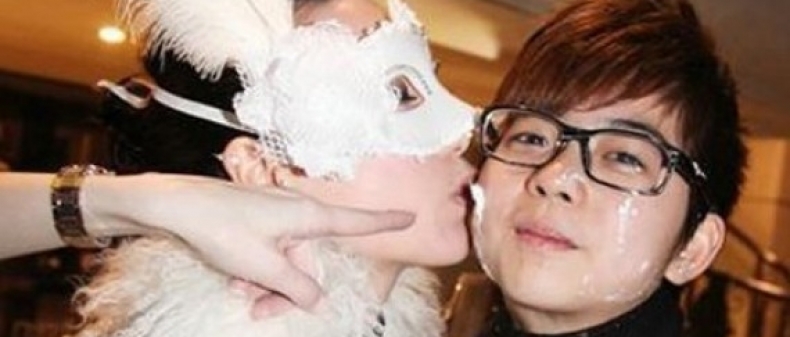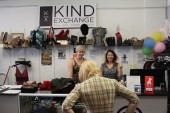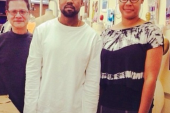
When I was 7-years-old, I wrote a poem. Upon reading it, my mother, as mothers do, declared it an insightful masterpiece and tacked it to the fridge beside the Sports Day schedule. It stayed there for a while, collecting dust and the odd ‘how great!’ from the occasional guest. Then, as all fridge paraphernalia seems to do, mysteriously disappeared– getting sucked into the fridge’s thick black plastic casing characteristic of both the 90s and my heart after the poem had vanished. While it was no longer subject to a life beside Kellogg’s contest entry details, I sometimes wondered what had happened to the masterpiece, and savored its first few lines unequivocally. They went, “Money, you either have it or you don’t. Money, it’s either a symbol or a quote.” Simple and concise; I peaked young.
I would soon discover that my young adult self would become a member of the latter parts of the poem, the “don’t” part ringing particularly true. Yet, growing up on Vancouver’s west side, I was also exposed to the former: Teenagers drove the four blocks to school in their parents’ Mercedes and Hummers, skiing was not only reserved for Whistler but for marble countertops and the back of limos, acquaintances owned private jets, and infinity pools were saved for the often un-recalled hours between three and five in the morning, until the summer sun rose and played off the endless stretch of water, allowing Patron bottles to be replaced by haphazardly rolled joints and heavy eyelids. I have been exposed to excess by western standards, yet every so often a piece of knowledge comes along that juxtaposes and questions everything you thought you knew. For me, this most recently happened when I wrapped my hands around a copy of Kevin Kwan’s debut novel Crazy Rich Asians, flicking my wrists with increasing fervor as I sifted through its pages.
a masked woman licks cream off tomby heiress Zhang Jiale’s face
The story reads as an insiders guide to Asia’s secretive upper-crust milieu. Readers find themselves in the heart of Singapore’s establishment money, in the company of “people who are richer than God.” On the inside, looking outwards, the narrative follows the private jets to their private island destinations, delves inside the closets (which are really large duplex apartments in their own right) lined with “you know I only wear six designers: Chanel, Dior, Valentino, Etro, and my dear friend Stella McCartney, and Brunollo Cucinelli for country weekends.” And onto plates laden with delicacies and gold encrusted detailing designed to match the room’s crown molding. Yet between the excesses that make “Upper East Side girls look like Mennonites,” a tension between Mainland China and Asia’s longstanding establishment money becomes so tangible it can be felt oozing out of the letters on each page with gumption steady as sand sifting through an hourglass.
While the novel is fiction, the tension it carries is not. It is estimated that one in every three luxury designer purchases in 2015 will be made by an Asian consumer. Today, local Hong Kong newspaper headlines, as Elle‘s Janice Y. K. Lee documents, “are full of headlines that read like The Onion: There’s the one about the mainland customer who inquired about installing a microwave inside a Bentley so that he could enjoy his beloved instant noodles on the road. There’s tomboy heiress Zhang Jiale, whose feed on Weibo (the Asian Twitter) recently went viral, thanks to posts of herself boarding private jets or buried beneath a mountain of Gucci and Prada shopping bags. And there are the colorful excesses of politicos: When the New York Times revealed that Prime Minister Wen Jiabao’s family, including his 90-year-old mother, had accumulated assets valued at more than $2.7 billion.”
This excess, when paired with the burgeoning shopping habits of Mainland China, have contributed to new problems in global fashion markets. It isn’t uncommon for luxury retailers like Louis Vuitton to find over twenty Asian tourists waiting simultaneously to purchase merchandise, this number only increasing with favorable exchange rates. These conditions have forced retailers to implement new purchasing limits. Louis Vuitton was forced to limit the number of items a customer could purchase to two per day, with several key locations like its flagship Champs Elysees store closing early in order to preserve stock for the Christmas season. While the problem of being limited to purchasing two Louis Vuitton items per day is unlikely to affect the majority of fashion enthusiasts, when combined with the increasingly blistering demand, it has created a new grey market for luxury designer goods. Managers at Vuitton’s Galeries Lafayette location recently discovered their most VIP shoppers, two Chinese women who spent over $700,000 each per year, were selling their purchases on China’s eBay: Taobao.com.
Yet beyond this new grey market, shopping restrictions, and spikes in first quarter sales (Chinese New Year), the ultimate effect on the world of fashion, if any, of this expanding consumer demographic remains unknown. However its effect on the politics of Asia is one that only further segregates the continent, stringing layers of caution tape between old and new. The establishment, which uses the term “Mainland” as a mostly derogatory slur to suggest inequality, has only further privatized itself away from public domain. Because of this highly privatized world, Crazy Rich Asians becomes a rare anthropological document–one that accurately depicts the details of an otherwise inaccessible world. For this reason, beyond the sometimes insufferably mind-bending concepts of wealth featured throughout the novel, Kwan gives us a portal into better understanding the world’s fastest growing economy.
After I finished the last page, I slung the novel back into the only Louis Vuitton item I own, a well-worn monogrammed Carryall with weathering leather handles. I realized the bag had not become the symbol of wealth the luxury brand had intended it to be. Instead, as it housed a couple Metro receipts and a used CN Tower 2-for-1 coupon, it had become a symbol of all the wealth I didn’t have. As someone who has a talent for missing things (details, deadlines, people, Loblaws sales, etc), I did not miss the importance of the publication of Crazy Rich Asians. Then, I wondered how much my bag would sell for on Taobao.com.
____
Claudia McNeilly writes for Toronto Standard. You can follow her on twitter at @claudiamcneilly.
For more, follow us on Twitter @TorontoStandard and subscribe to our newsletter.














